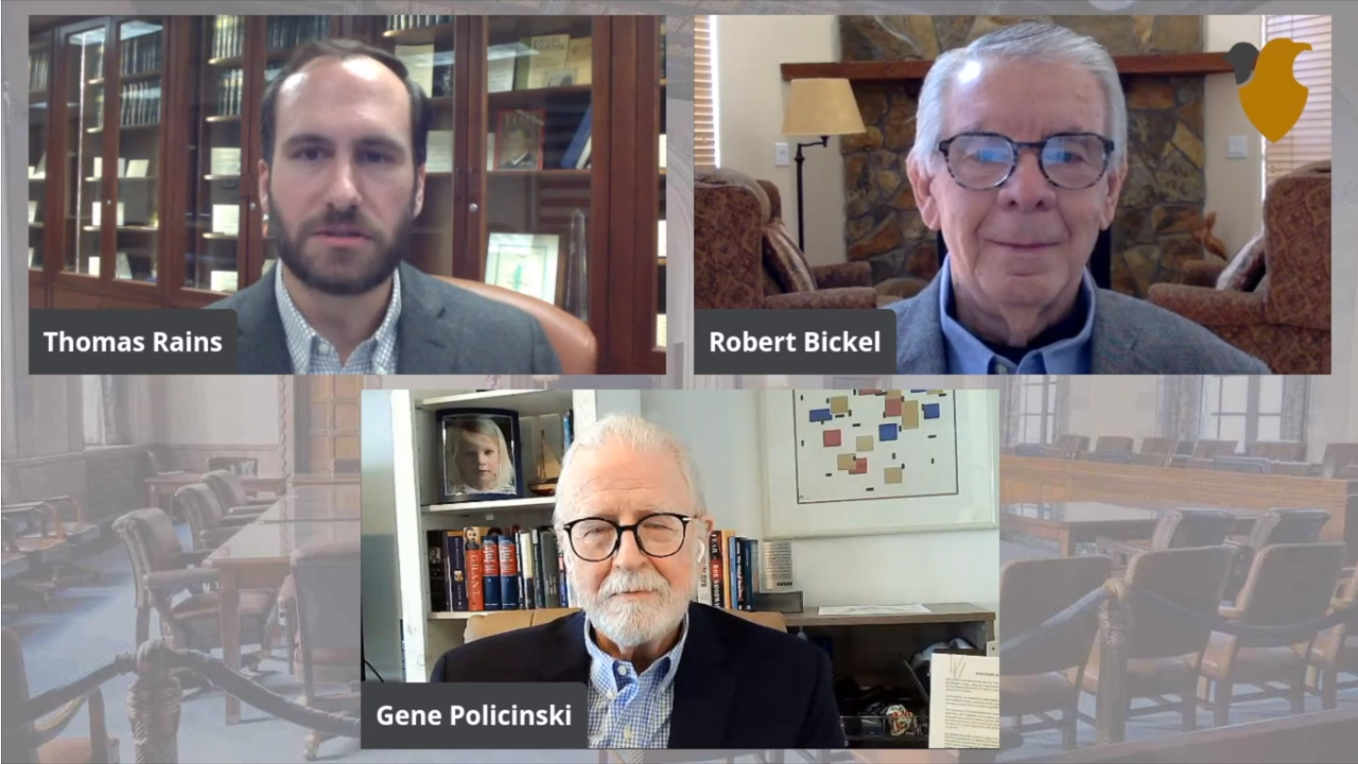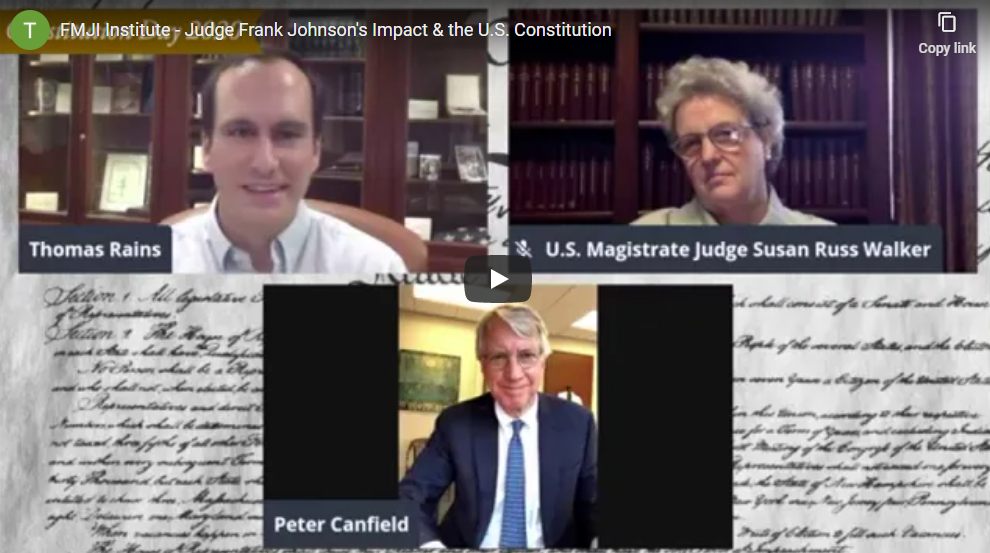The Judge Frank M. Johnson, Jr. Institute (FMJI) today announced the release of a new online multimedia course in conjunction with the Freedom Forum Institute of Washington, DC.
“The First Amendment and the Civil Rights Movement” can be accessed through FMJI’s website and is designed for use primarily by higher education faculty, students, working professionals and others who wish to explore more fully the intersection between the movement and the First Amendment. It incorporates multimedia resources from the Newseum and written and documentary film materials produced by Stetson University. Many of the cases highlighted took place in Montgomery, AL, and were presided over by Judge Frank Johnson, including Browder v. Gayle, which stemmed from the Montgomery Bus Boycott beginning in 1955, and Williams v. Wallace, which authorized the Selma to Montgomery March in 1965. A full list of interviews is included with this press release.
To celebrate the release, on Tuesday, March 2, FMJI will premier an interview with course authors, Prof. Robert Bickel of Stetson University and Gene Policinski of the Freedom Forum, conducted by Thomas Rains, FMJI’s executive director. The interview will premiere on FMJI’s Facebook page at 2:00 on Tuesday, March 2.
“This course is a wonderful opportunity for educators, students, and researchers alike to learn more about how the U.S. Constitution shaped the Civil Rights Movement,” said Rains. “The Johnson Institute’s goal in partnering with the Freedom Forum to promote this course is to give citizens across the country a deeper understanding of our Constitution and how it has played a role in the shaping of our nation.”







